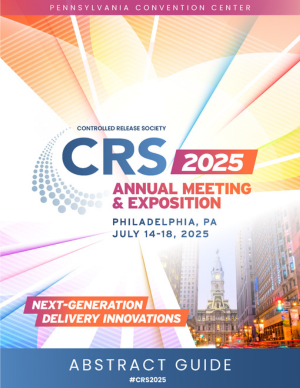Nanomedicine and Nanoscale Delivery (Focus Group - NND)
(418) A 3D Co-Culture Model of Lipid Nanoparticle Uptake in Senescent Pancreatic Cancer
It has been shown that chemoresistance and immunosuppression in Pancreatic ductal adenocarcinoma (PDAC) can be overcome by inducing senescence to introduce therapeutic vulnerability [1]. We have shown Galectin-3 (Gal-3) overexpression in senescent PDAC cells, thus we developed Gal-3-targeting lipid nanoparticles (LNPs) encapsulating a BRD4-degrader for selective clearance. In murine PDAC models, we show that LNPs remodel the senescent tumor microenvironment (TME) resulting in improved survival. Here, we evaluate our LNP treatment on the senescent PDAC TME using 3D co-cultured “tumoroids.”
Learning Objectives:
- Understand the implication of senescence status on cell survival with ARV-825 in PDAC tumoroids.
- Evaluate differential LNP uptake of tumoroid cells in senescent and non-senescent PDAC tumoroids.

Leon J. M. W Wagner, MSE (he/him/his)
PhD Student
Weill Cornell Graduate School of Medical Sciences / Memorial Sloan Kettering Cancer Center
New York, New York, United States

